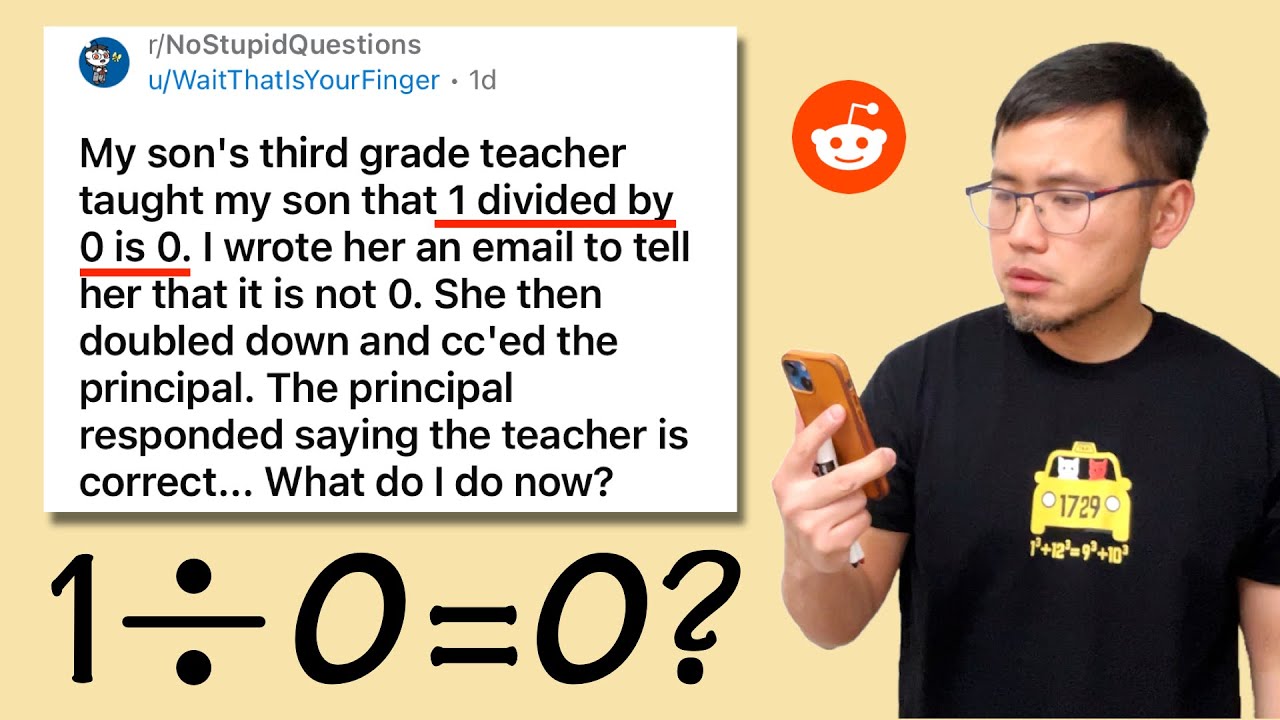I mean, it’s the easiest disproof to say if 1/0 = 0, then 0*0 must equal 1, which it obviously does not as it would violate the zero property.
Awesome!
Anything /0 is considered impossible as an agreement. There’s no actual math involved in that answer. In reality you can divide by 0, but the answer has no natural number.
How many times can you add 0 before you get 1? The answer actually is the drunk(😅) 8 or ‘infinite’, but our minds can’t grasp the very existence of infinite, so we just went with ‘impossible’.
There are ways to circumvent that added concept of some calculators when dividing by 0 anyway and it will show you “Infinite” if it is able to. I remember you could do this in C+ even, but not 100% sure anymore how. I think it was with dividing by an ever decreasing number-variable. When it reaches 0 just before the calculation, C+ didn’t default to an error, but just said ‘Infinite’. But like I said, not 100% sure anymore if that was the actual way.
If your counter against that is that 0 will never become 1 no matter how many you add, then that just proves ‘infinite’ correct. If it ever could, it wouldn’t be infinite…
Sooo, this guy is smart, but also wrong in his calculation here. 😅
Edit: Anyway, voting me down doesn’t change the inconvenient truth above. 😅
We do have a concept of limits in math. That doesn’t mean we ignore it. It is just more correct not to divide by zero as the limits from either side do not converge. Or would you allow -inf as an answer aswell? That is the answer if we approach the limit from the other side.
It is not only convenience but rigor that dictates dividing by 0 to be an erroneus assumption.
Infinite, just like 0, actually has no - or +. So yes and no. For all intents and purposes -inf == inf.
This is completely wrong, please don’t listen to this person.
I suggest you Google “Projectively Extended Real Numbers”.
You mean this one?
The projectively extended real number line is distinct from the affinely extended real number line, in which +∞ and −∞ are distinct.
Now tell me, do we usually work with the projectively extended real numbers?
If I have one whole pizza, and I divide it zero times, then wouldn’t I still have one whole pizza? I.e., shouldn’t
1 / 0 = 1?In this example, when you say “divide it zero times”, what you are really saying is “divide it by 2, zero times”.





